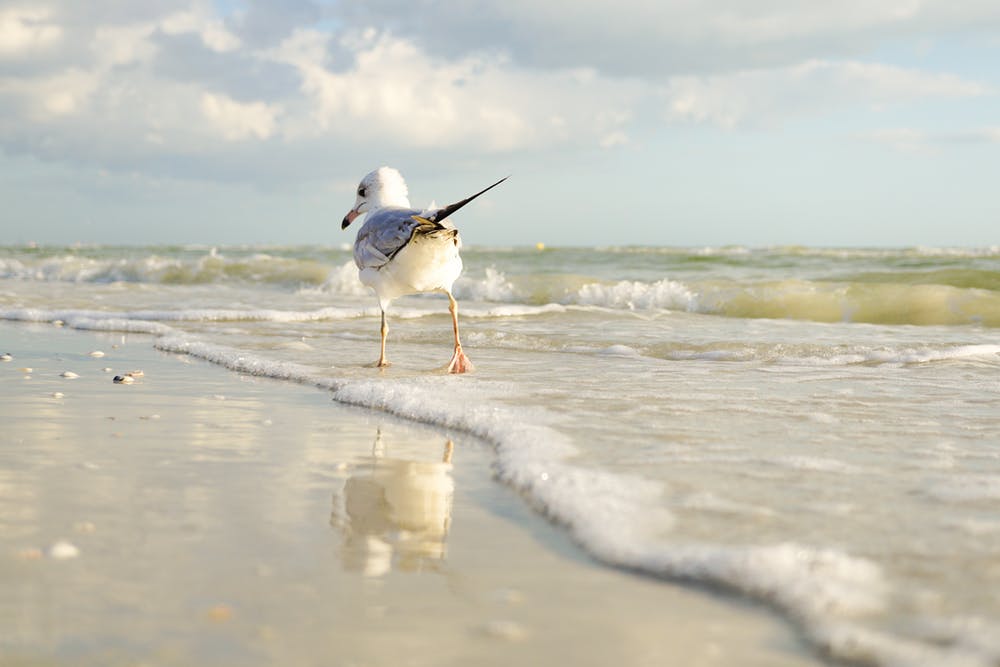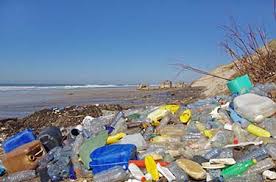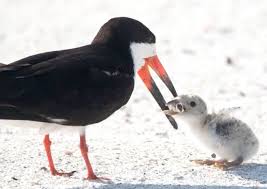DJ Featherton
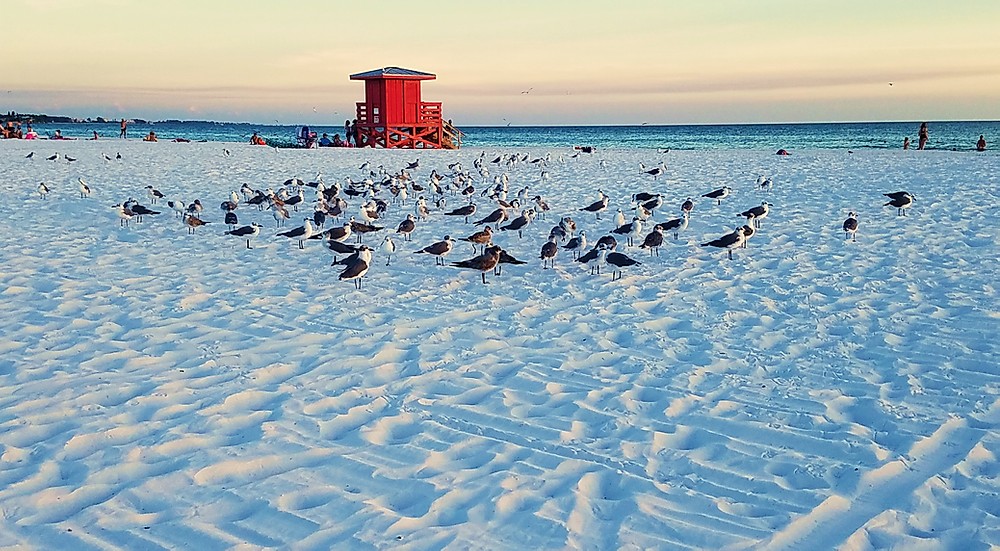
I live in Florida and I’m an active birder. My area beaches are pure white sugar sand and home to millions of shorebirds and migratory visitors. Birding the salt marshes, back waters, or beautiful sandy shores is always a great experience. These same sandy shores, filled with exotic birds, are shared with people. Lots of people! They come from all over to fish and vacation on the beaches. The question is, can the birds, the people, and the environment all get along? Florida’s exotic environment is a delicate treasure that requires good care and some common sense. The irony is we must protect the wonders of nature from ourselves. Well, I’m just a bird watcher, but as I think about it, there are some 50 million of us birders across our country. This is huge, we make a force! If each one of us did our share (as many of us do) we can have a very positive impact on the environment and a major benefit for our birds of North America. Here are some simple and obvious rules that any of us can follow and request of others…
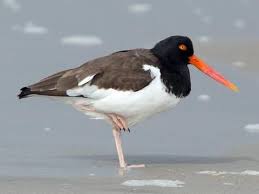
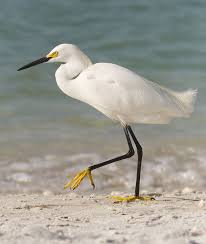
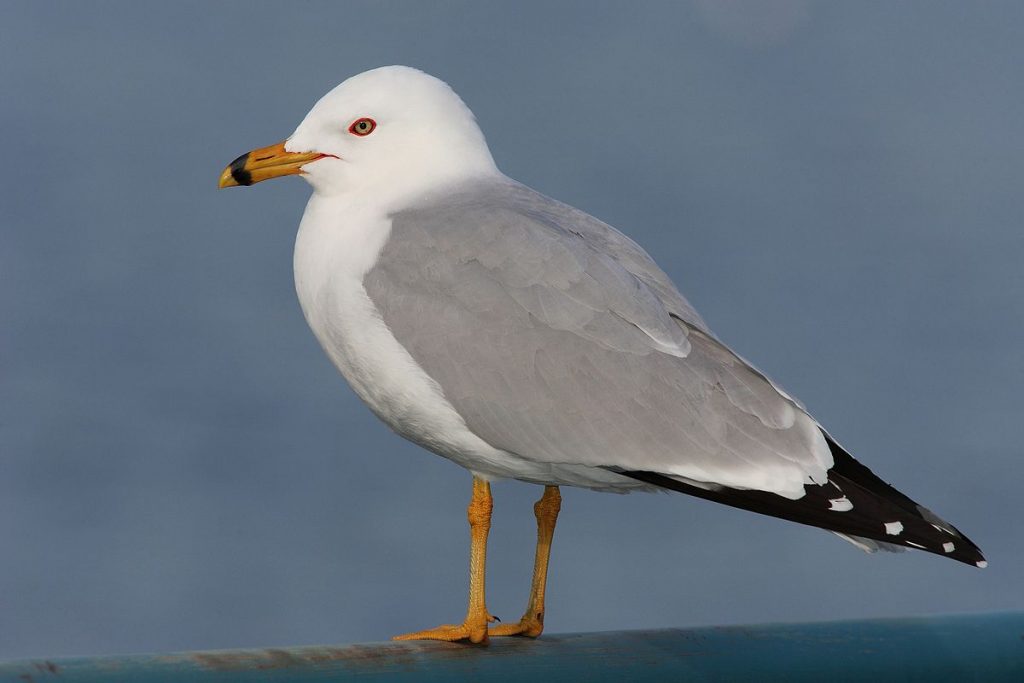
Take your trash with you! All of us birders and most birds will appreciate it. It attracts all kinds of predators and is dangerous to man and wildlife. Think of it. Cats, rats, mice, snakes, sick raccoons, crows, gulls, and other scavenging creatures eating what they shouldn’t be eating and making their own eco system where garbage is left behind. Have you ever seen what the county picks up each week at the beach? Did you ever see plastic water bottles or cans and paper trash left on the shores of a pristine lake in northern Minnesota? How about lots of birds fighting over someone’s half eaten french fries? Or a mother bird feeding her chick a cigarette butt? Did you ever see a well-favored beach after spring break is over? And after all this, it just looks terrible! Florida or anywhere, take your trash with you.
Stay out of posted areas. There are serious reasons for the postings. I know, you’re a birding naturalist and won’t disturb nature. Does this include the nests of endangered turtles you just walked on? Hey, who’s that birder standing in the posted sea oats area to get a better look at some shorebirds? He probably doesn’t know that sea oats hold the sandy ground during storms and are vital for the prevention of beach erosion. These plants are protected by law! Bird nesting areas are posted. Many shorebirds nest on public beaches. And rookeries don’t appreciate human traffic. These areas need protection all year even though breeding and nesting season is short. Stay out! Sometimes an area is posted for our own protection. Think about bears or alligators! Stay out of posted areas!
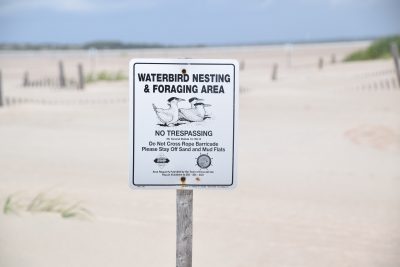

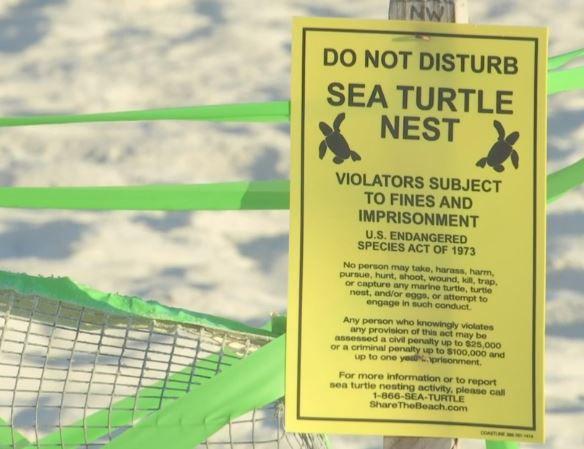
Observe birds from a distance. If the birds you’re watching take flight, you’re too close. I know, you want to take a photo with your trusty Brownie Instamatic. If this is the case, it’s time you join the club and buy today’s pair of high-tech binoculars and a new camera that can photograph a thistle seed on the bill of a chickadee from a mile away. This will also make you look like a real pro to your non-birding friends! More importantly, flushing the birds is a disturbance, especially during nesting and fledgling time. I’ve seen crows waiting for a beach walker to flush parent birds from their nest. This leaves eggs and chicks for the crows. Get some good binocs and a good camera! The birds will appreciate a little distance.
Dispose of fishing line and tackle appropriately. This is huge whether you’re a commercial fisherman in the Gulf of Mexico, or fishing for perch on a quiet northern lake. Monofilament fishing line is used by every fisherman, and it never biodegrades. This gets tangled in underwater rocks and branches, big fish break the line leaving yards streaming from the embedded hook, and birds are forever getting tangled up and dying a terrible death. I’ve personally saved lots of pelicans, egrets and herons that had a wing tied up in fish line, or hooks embedded so they can’t fly. Most of these birds were at my dock at home. This is common in Florida. It’s tragic! No matter where you fish, dispose of your fishing line and tackle responsibly.
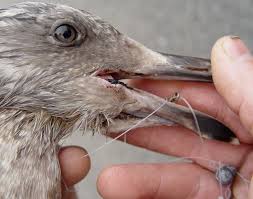
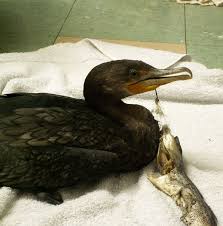
Don’t feed the birds. This goes to public places where human food is plentiful, and I’m thinking about grackles and shorebird predators like crows, gulls or even herons. These birds get addicted to our greasy and chemical filled foods to the point of changing their diet from what nature intended. Hard to believe when you see them gobbling up anything people throw at them. Many of these birds get sick and die, but if nothing else they become a rather dirty nuisance that has no need for your french fries. I’m sure we’ve all had these entertainers right at our outdoor table more than once. Don’t feed the birds people food!
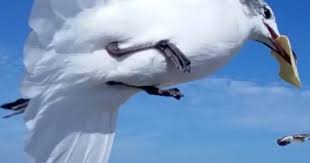
Those are just a few simple rules we 50 million birders can easily follow to make a brighter world for us and our feathered friends. Happy birding!
